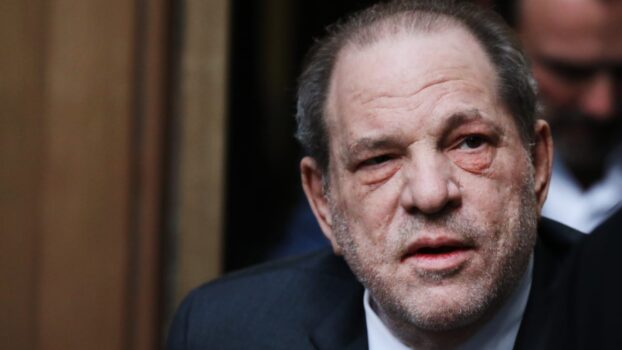 Harvey Weinstein, the former film mogul convicted of rape in 2020, saw his conviction overturned Thursday by a New York state court, setting the stage for a potential new trial.
Harvey Weinstein, the former film mogul convicted of rape in 2020, saw his conviction overturned Thursday by a New York state court, setting the stage for a potential new trial.
The state Court of Appeals ruled 4-3 that the judge in the high-profile #MeToo trial prejudiced Weinstein with improper rulings, including allowing testimony about allegations unrelated to the case.
“The court compounded that error when it ruled that defendant, who had no criminal history, could be cross-examined about those allegations as well as numerous allegations of misconduct that portrayed defendant in a highly prejudicial light,” the court stated.
Judge Jenny Rivera labeled the errors “egregious” and called for a new trial, potentially bringing Weinstein’s accusers back to testify if prosecutors pursue further legal action.
However, dissenting opinions criticized the majority’s decision, with Judge Madeline Singas accusing them of “whitewashing the facts” and failing to recognize the jury’s consideration of Weinstein’s past assaults.
In response to the ruling, Weinstein’s spokesperson expressed delight, while his lawyer hailed it as a “victory” for defendants nationwide.
Weinstein, serving a 23-year sentence for the New York conviction, still faces charges in Los Angeles, where he was convicted in 2022 of rape and sentenced to 16 years. His Los Angeles attorney expressed confidence in upholding that conviction.
Despite Weinstein’s legal triumph, his accusers and their advocates voiced disappointment, expressing concern over potential retrials and the retraumatization of survivors.
The decision reverberated across the #MeToo Movement, which gained momentum following revelations of Weinstein’s pattern of sexual abuse, underscoring ongoing debates about accountability and justice in cases of sexual violence.

Biden Withdraws From 2024 Presidential Race, Endorses Kamala Harris
Global Technology Outage Disrupts Key Services Across Multiple Countries
Paul Kagame Wins 99% of Vote In Rwanda’s Presidential Election
Authorities Investigate Shooting At Trump Rally As Assassination Attempt